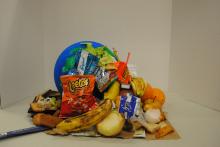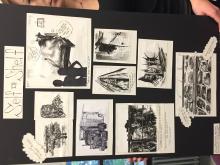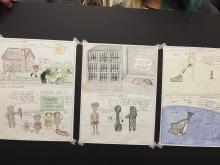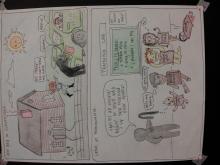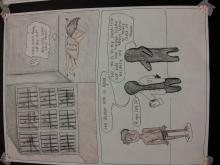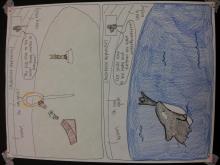Introduction
This course offers an introduction to the environmental humanities. Literature, culture, and the environment are explored in their interlinkages along five examples: the study of food and consumption, animals and the post-human perspective, waste, climate change, and the question of diversity loss in the age that has recently been called the Anthropocene of the Age of the Human by atmospheric scientists. The Anthropocene is a concept that describes the scale of human impact on the Earth in geological terms. The concept was first pronounced by Eugene Stoermer and Paul Crutzen when they measured thin layers of carbon deposit in the Earth around 1800 and consequently announced a new geological epoch in which humankind has a significant influence on the Earth’s atmosphere. The idea is that human impact is growing in the area of land use for food production, ecosystems, loss of biodiversity, climate change, and species extinction. We will explore the cultural dimension of the concept of the Anthropocene and how the study of literature and culture can contribute to an understanding of the historical, ethical, and aesthetic dimension of this new era of the human. The course is organized into five modules on food and consumption, animals and the post-human, waste, climate change, and the Anthropocene.
Team Learning
This class is taught in the team learning approach. Students will join groups of 5-7 members and work together as a cohesive learning team throughout the quarter. We will use a variety of interactive formats in class including lecture, class discussion, team debates, and presentation of team projects. Students are expected to attend each class period with all assignments completed by the beginning of class and ready to engage in and do online research about the topic of the day (bring your laptops). At the beginning of each unit, students will undergo a thorough readiness assurance process to insure that they are accountable as individuals. The Readiness assurance Test (RAT) consists of questions about a set of pre-assigned readings. Students will take this test twice, once as individuals, and again as teams. Both tests will be scored as soon as possible for immediate feedback. Class time will be devoted to the discussion of the readings and to task-based assignments that apply the critical concepts from the readings and discussions to projects. At the end of the quarter, team members will evaluate each other’s contributions to the team in a peer assessment process. Each team builds a portfolio with all their project assignments and will showcase their work at the end of each unit. At the end of the quarter, all teams will compete with their portfolios during a student conference to collect a maximum number of points.
Module 3, Team 1,
Advocacy Spot - The Plastic Apocalypse
Module 3: Team 2,
"RUNOFF"
Module 3: Team 3
https://www.youtube.com/watch?v=HInCFKU-JNw&feature=youtu.be
Module 3: Team 4
https://www.youtube.com/watch?v=yFIqJD7lqZM
Module 3: Team 6
Module 4: Team 6, Climate Change (PDF)
